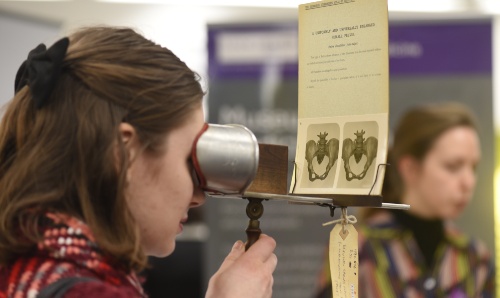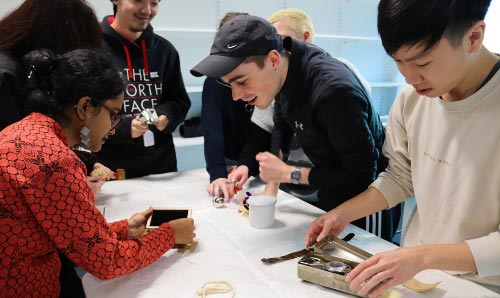
Explore the collection
The museum houses many common medical instruments, equipment and also rare and one-of-a-kind objects that may not be accessible elsewhere. We provide opportunities to learn about these objects both digitally and in person.
Aspects of the development and past use of some objects reflect prejudices of the era, which may cause offense, or upset. This is not condoned by The University of Manchester, but we are committed to providing access to this material as evidence of attitudes of the time period.
You can explore our incredible collection of medical artefacts through the following ways:
Digital access
The Instruments of Change digital exhibition tells the story of innovation, change and discovery across 200 years of healthcare, research, and medical education in Manchester.
- Find out how a professor of anatomy helped to shape the outcome of the Second World War through research into penicillin.
- Discover the University’s role in evolving the patient experience for children in hospital.
- Look back in time to when medical education in the city was in its infancy.
Visit the The University’s Manchester Digital Exhibitions website to discover Instruments of Change:
You can also view high-quality digital images of a selection of objects and printed materials from the collection on the Manchester Digital Collections website.
Teaching and learning
Our ‘A History of Medicine’ educational resource links museum objects with themes from the National Curriculum. It features questions and answers and other activities to encourage pupils to learn about the objects. Please get in touch for more information about this resource.
Journal articles
The Historical Medical Equipment Society has published several journal articles which focus on some of the objects from the collection.
- View The Historical Medical Equipment Society Bulletin No. 37, 2022.
- For more information and to enquire about accessing journal articles please get in touch.
Further access
To request access to more of the museum collection for study please contact us.
Access is by appointment only and priority is given to the University’s community of staff and students. Researcher visits can also often be accommodated with prior notice.


